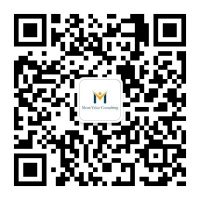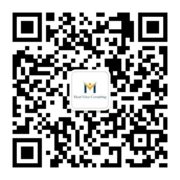What you should prepare before an interview?
Although many companies have suspended recruitment or switched to online interviews due to the current epidemic, with the resumption of work, some students may have received the notice of the onsite interview, which is a so-called battle of no preparation. As for the onsite interview, some contents can be learned and prepared as early as possible.
The in-person interview usually takes place after the initial phone interview or after the job fair, but sometimes if your resume and qualifications are excellent, you can go directly to the company. The interview is the time to show off your strengths, experience, and understanding of the job. The purpose of an on-site interview is for you and the interviewer to get to know each other and see if you’re a good fit for the company. Of course, it’s a two-way process. The interviewer can use the interview to determine whether you are qualified for the job. You can also learn about the company’s culture and working environment directly through the interview.
In conjunction, here are the things you want to keep an eye on:
1. Initial arrangement: since each company has different policies on reimbursement and travel arrangements, you need to negotiate with the company about the itinerary. Remember to give yourself enough time so that you don’t lose it by accident. Remember to bring the company’s address and contact information and keep all your receipts. If you don’t know your city well, do some research.
2. Interview attire: dress appropriately. Generally speaking, engineers in tech positions dress differently in different types of companies. For example, for most investment Banks and financial tech engineers, it is usually better to have a formal interview, but for Internet tech engineers, it is only necessary for business casual or even jeans and t-shirts. As each company may have a different style of dress, it is advisable to ask our panel for advice before the interview. For companies that only need business casual, if you wear a suit and tie, it may not be the best choice. Of course, almost no one is going to give you a minus for being over-dressed.
3. Research on the company: before going to onsite, you must have a deep understanding of the company. If you don’t have a good understanding before applying for this position or phone interview, you must be familiar with their products and services this time. At the same time, make an understanding of all the people you will meet during the interview. Remember to ask HR for an interview schedule, so that you will know their name, position and interview time. Small series will be Google will interview me, about their background, graduate school has a knowledge. In this way, I can communicate with them and accumulate topics for small talk. Another great tool is linkedin.com, which is usually a great place to find someone’s professional background. If you know someone at onsite, be sure to ask them for information about your position.
4. Things to take with you: take an interview portfolio with several copies of resume, interview script, reference list and list of questions. I have already introduced an interview script in the article of the phone interview, including some answers to common questions, your self-introduction and so on. You have to be very good at remembering this. You may also want to prepare a list of questions you want to ask during the onsite. Depending on your research with the interviewer, you may ask different questions.
5. Small talk: you know that an interview at an onsite is formal and informal. Many people are confused about how to make Small talk. A lot depends on one’s personality and understanding of American culture. But in order to cope with the onsite, I can introduce some topics to you here: you can talk about the local weather and accommodation situation if you have enough knowledge to talk about NCAA games, such as basketball, football, etc., if you and the interviewer are alumni, remember to talk about the school. If you know what your interviewer has won, talk about it. There is also industry news and so on. Employee welfare and corporate activities are common topics.
6. Things to do before you leave: do some notes during the interview. This will not only give the impression that you are open-minded and studious but also accumulate topics for you when you write thank you letter later. At the end of each interview, ask the interviewer for his or her business card. If he or she doesn’t have a business card, at least ask for his or her email address. Be sure to meet your interviewer after the interview, usually HR. If you need reimbursement, be sure to ask HR about the procedures required.
7. Follow-ups: Write a thank you letter to everyone who followed up with you. Keep it short, but it’s best to mention one or two of the topics that came up during the interview (this is where the note comes in).
8. Salary: it is best not to conduct Salary negotiation directly during the interview. If asked this question, to be flexible, give a range and try not to say a certain number.
In addition to the above, here are a few tips to help you prepare for the interview.
Tip # 1
Dress neatly and generously. No wrinkles, rags, slippers, messy hair, etc. In addition, girls should try to wear too dazzling jewelry, too heavy perfume.
Tip # 2
Be sure to rest well before the interview, avoid alcohol, fresh breath, and avoid heavy food.
Tip # 3
Pay attention to your body language and facial expressions during the onsite interview. When communicating with people, pay attention to eye contact, stand straight, shake hands to be strong, keep smiling, do not bow waist, speak to maintain enthusiasm and enthusiasm.
Tip # 4
Be confident when talking about projects in your resume or your experience, or the interviewer will know it.
Tip # 5
No matter when it comes to your experience/challenge/shortcomings, etc, must remember if your description, don’t have too many negative emotions, also don’t spray colleagues like before, no one will like a negative energy.
Overall, being prepared and then relax, be yourself is the key to success at onsite. If you’re afraid of onsite, be sure to work on the interview script. You can ask others to do the role-play exercise. Practice makes perfect. As long as you practice it over and over again, you will soon become fluent and proficient in it.



